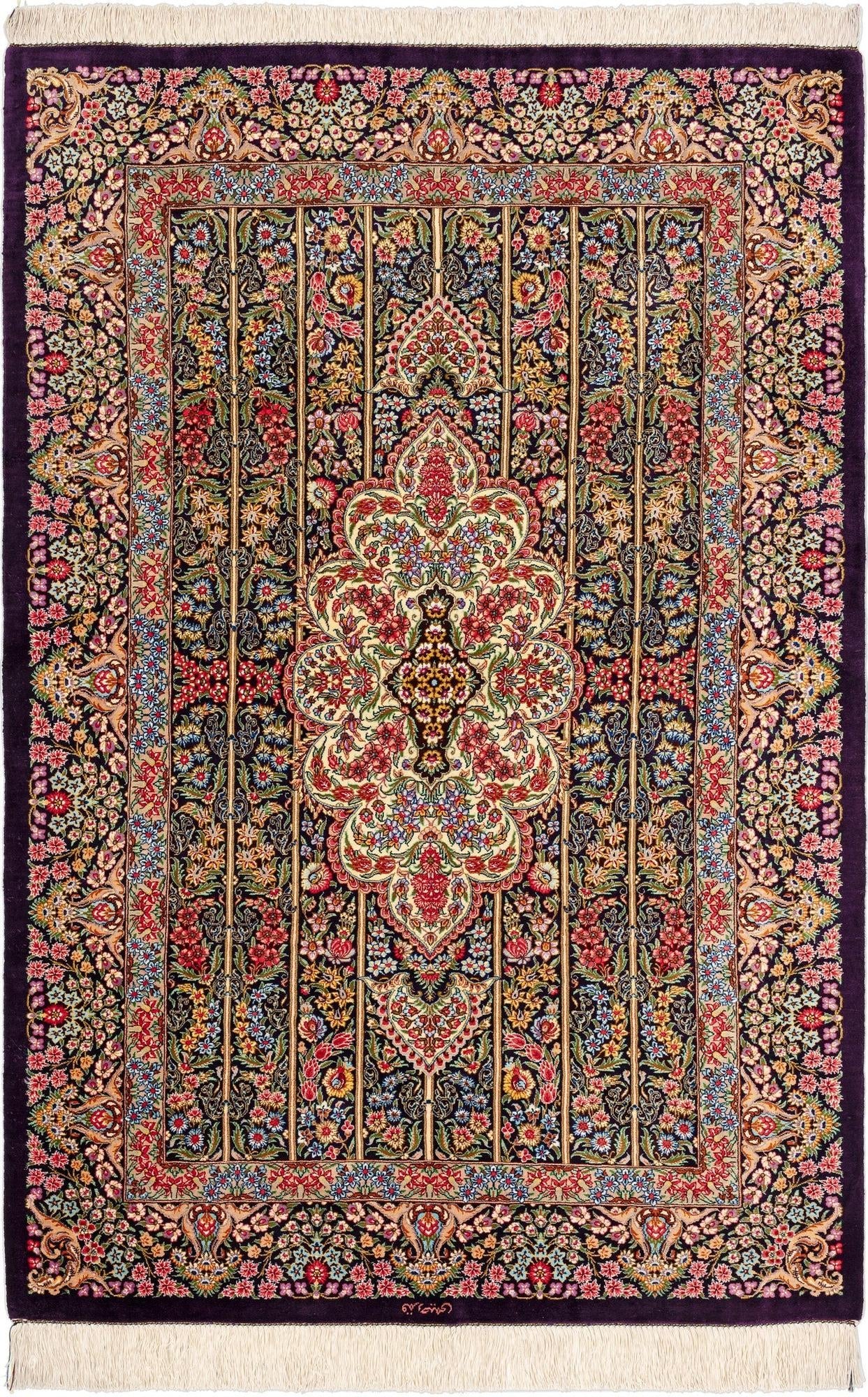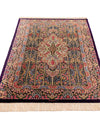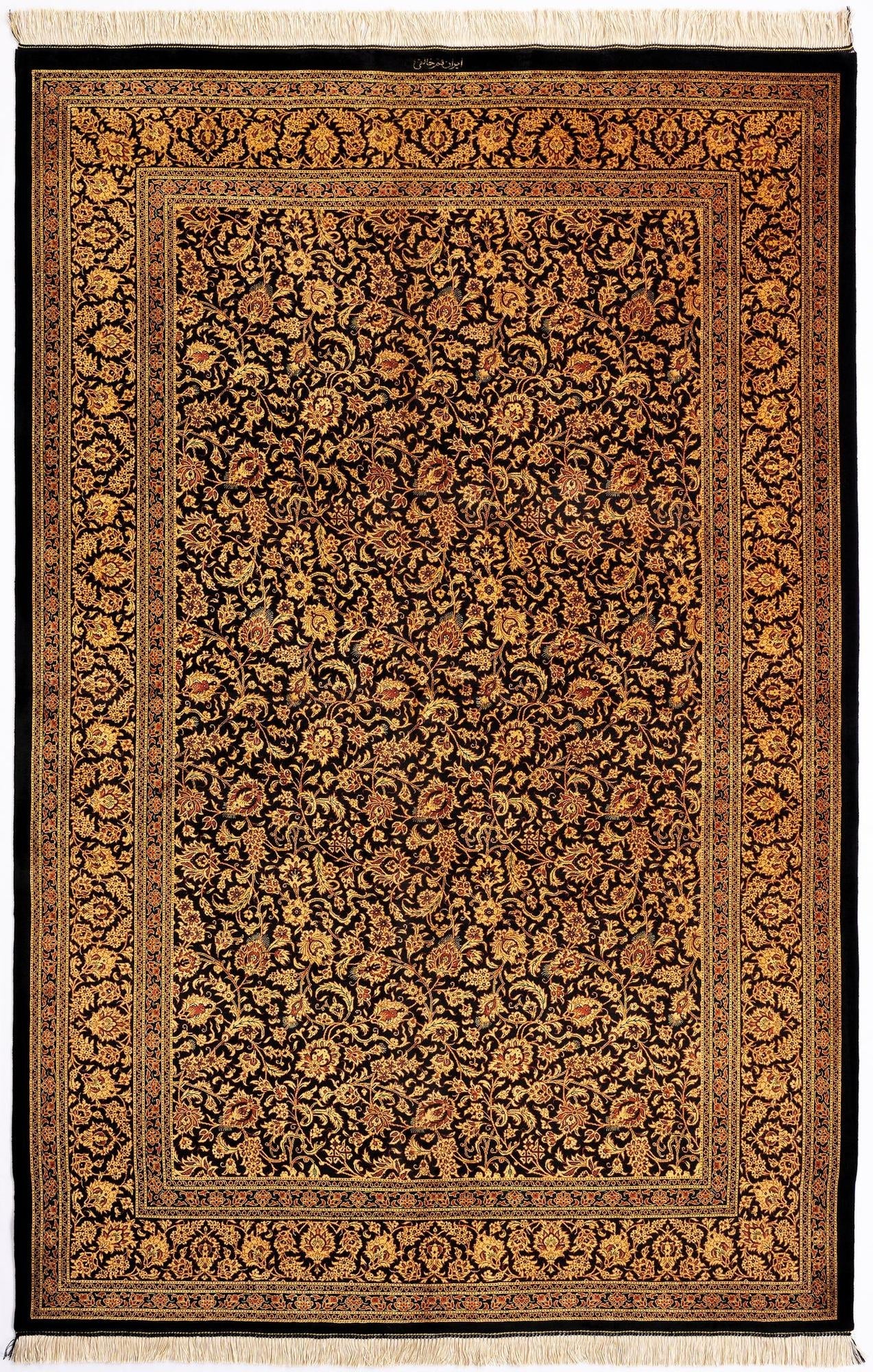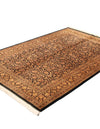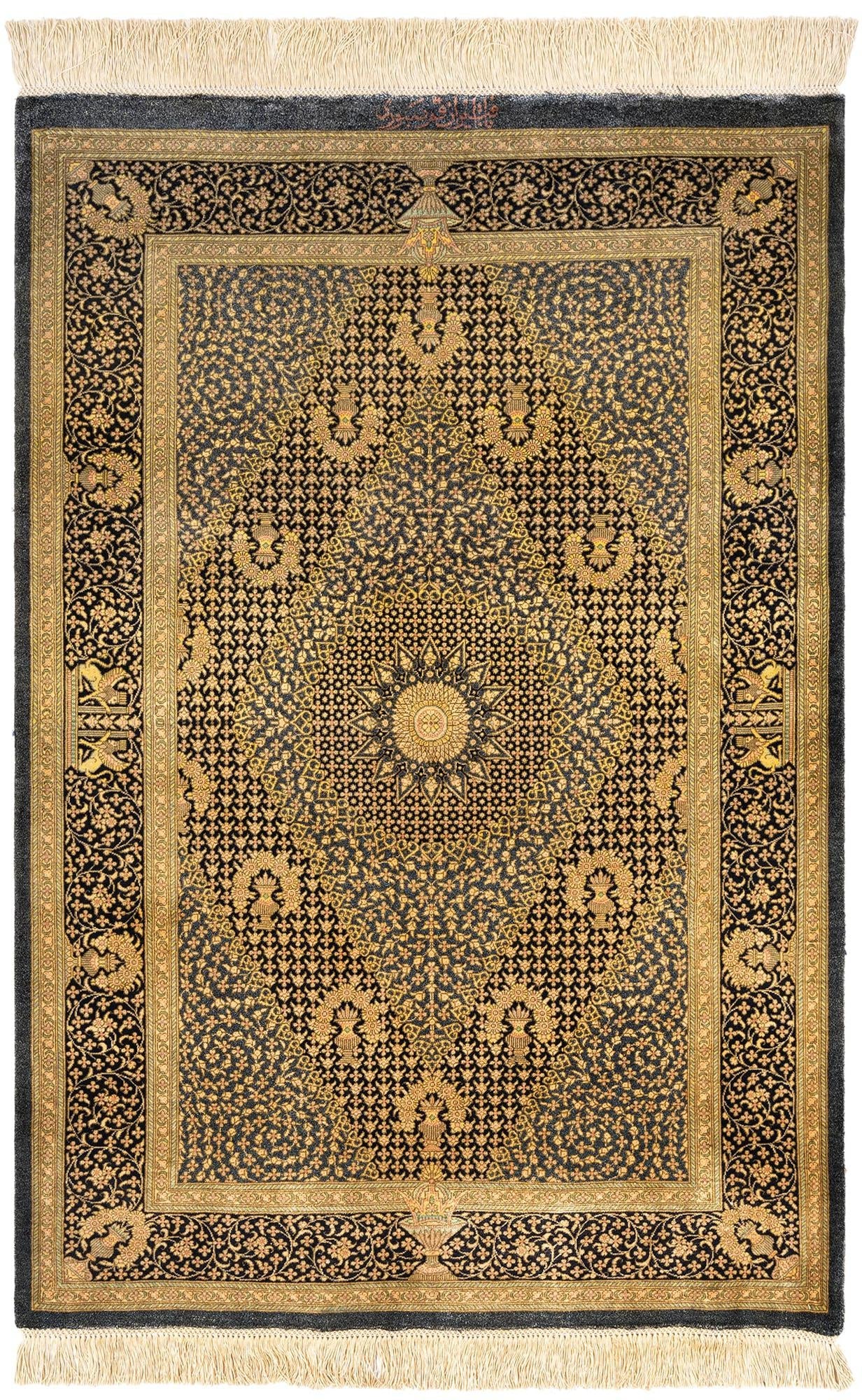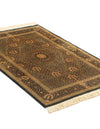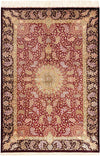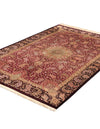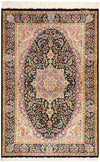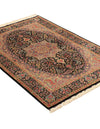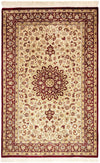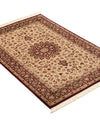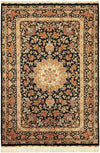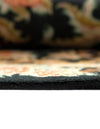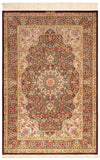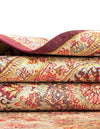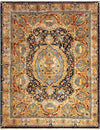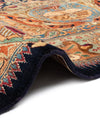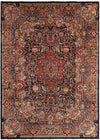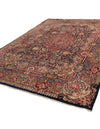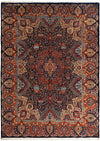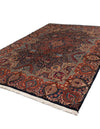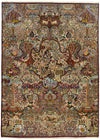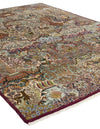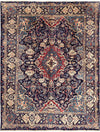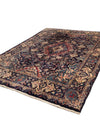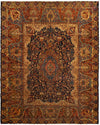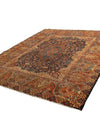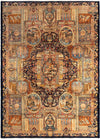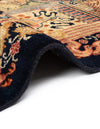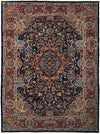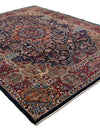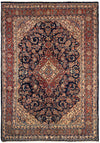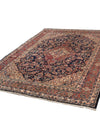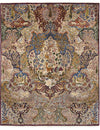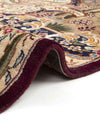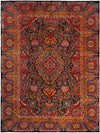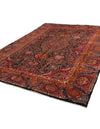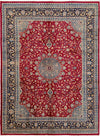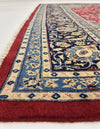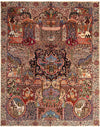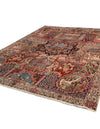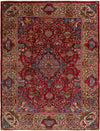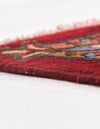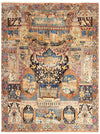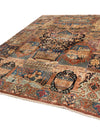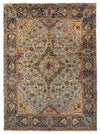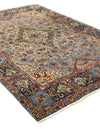Hand-Knotted Rugs: Elegance and Timeless Comfort for Your Home
Hand-knotted carpets are more than floor coverings—they are timeless masterpieces crafted with care and precision by skilled artisans. These luxurious rugs bring unparalleled elegance, warmth, and long-lasting durability to your home, combining functionality with aesthetic charm. Whether you’re looking for a centerpiece to tie your living room together or a touch of sophistication for your bedroom, hand-knotted rugs are the perfect addition to any space.
Why Choose Hand-Knotted Rugs?
Exceptional Craftsmanship
Every hand-knotted rug is a testament to extraordinary artistry. Expert artisans meticulously tie individual knots, often taking several months or even years to complete a single rug. This meticulous process ensures superior quality, intricate designs, and long-lasting durability unmatched by machine-made alternatives.
Durability and Longevity
Hand-knotted rugs are made using high-quality natural fibers like wool and silk. The dense weaving technique not only enhances their strength but also ensures they can withstand heavy foot traffic. With proper care, these rugs can retain their beauty and structure for decades, making them a valuable, lasting investment.
Unique and Personalized Designs
Because every knot is tied by hand, no two hand-knotted rugs are alike. This uniqueness adds a personalized touch to your home, making each rug a statement piece with its own character. From traditional Persian designs to modern, minimalist patterns, hand-knotted rugs cater to diverse tastes and styles.
How to Choose the Perfect Hand-Knotted Rug
Material Matters
Wool: Known for its durability, softness, and natural stain resistance, wool rugs are ideal for high-traffic areas like living rooms and hallways.
Silk: Offering unparalleled sheen and elegance, silk rugs are best suited for low-traffic areas or as decorative pieces.
Wool-Silk Blends: These rugs combine the best of both materials, providing durability with a luxurious shine, making them ideal for formal living rooms or bedrooms.
Design and Style Options
Traditional: Featuring intricate patterns, floral motifs, and rich colors, traditional rugs are perfect for classic or vintage interiors.
Modern/Contemporary: Clean lines, geometric patterns, and neutral tones make these rugs ideal for contemporary spaces.
Transitional: Blending traditional and modern elements, these rugs complement interiors that balance old-world charm with modern aesthetics.
Cultural Significance: Consider designs that reflect your personal taste or have cultural meaning, such as Persian, Indian, or Turkish motifs.
Choosing the Right Colors
Room Palette: Choose a rug color that complements or contrasts with your room’s color palette. Neutral tones provide versatility, while bold colors can make the rug a focal point.
Light vs. Dark: Lighter rugs can make a room feel larger and airier, while darker rugs add warmth and coziness.
Patterned vs. Solid: If your room has busy patterns or vibrant decor, a solid-colored or minimally patterned rug can create balance. Conversely, a patterned rug can add character to simpler spaces.
Where to Use Hand-Knotted Rugs
Living Room
Focal Point: Hand-knotted rugs can serve as the centerpiece in the living room, adding elegance and sophistication. They can anchor your furniture arrangement and create a cozy gathering area.
Under Furniture: Place a hand-knotted rug under the sofa, coffee table, and chairs to define the seating area and enhance the room’s overall design.
Dining Room
Under the Dining Table: A hand-knotted rug under the dining table adds warmth and style. Ensure the rug is large enough so that chairs can slide in and out without catching the edge of the rug.
Durability: Choose for a wool hand-knotted rug, which is durable and easier to clean, especially in areas where spills might happen.
Bedroom
Under the Bed: Placing a hand-knotted rug under the bed adds a luxurious feel and provides softness underfoot when you get out of bed.
Layering: You can also use smaller hand-knotted rugs on either side of the bed for a cozy, balanced look.
Hallways and Entryways
Durable wool rugs work well in high-traffic areas like hallways and entryways, providing both functionality and style.
How to Care for Hand-Knotted Rugs
To maintain the beauty and longevity of your hand-knotted rug:
Regular Vacuuming: Vacuum your microfiber carpet at least once a week to remove dirt and dust. Avoid using the beater bar.
Prompt Spill Cleanup: Blot spills immediately with a clean, dry cloth.
Professional Cleaning: Have your rug professionally cleaned every 12–18 months for a deep refresh.
Why Hand-Knotted Rugs Are Best-Selling in USA
The demand for hand-knotted rugs in the USA stems from their unmatched quality, timeless designs, and versatility. These rugs suit homes by combining functionality with aesthetic appeal, whether for modern apartments or classic estates. Their eco-friendly production process, reliance on sustainable materials like wool and silk, and cultural significance add to their appeal for discerning buyers.
Conclusion
Hand-knotted rugs are more than just decor—they are enduring pieces of art that enhance the beauty and functionality of your home. Their timeless appeal, coupled with superior craftsmanship, makes them the perfect addition to any space. Whether you’re redesigning your living room or adding a touch of elegance to your bedroom, a hand-knotted rug offers unmatched quality and style.
Frequently Asked Questions (FAQs) about Hand-Knotted Rugs
Q. What is a hand-knotted rug?
A. A hand-knotted rug is a rug that is crafted entirely by hand using a loom. Skilled artisans tie individual knots to form the rug's intricate design, making each rug unique and time-consuming to create.
Q. What makes a hand-knotted rug unique?
A. Hand-knotted rugs are crafted entirely by hand using a loom, with artisans tying thousands of individual knots. This process ensures each rug is unique and of the highest quality.
Q. How long does it take to make a hand-knotted rug?
A. The time it takes to make a hand-knotted rug depends on its size, design complexity, and knot count. Some rugs may take several months, while larger, more intricate rugs can take over a year to complete.
Q. Why are hand-knotted rugs more expensive?
A. Hand-knotted rugs are labor-intensive and require skilled craftsmanship. The process involves tying thousands of individual knots, and the use of high-quality materials such as wool and silk contributes to their higher price. These rugs are also durable and often considered long-term investments.
Q. Are hand-knotted rugs worth the investment?
A. Yes, these rugs are not only durable and long-lasting but also retain their beauty and value over time, making them an excellent investment.
Q.. What materials are used in hand-knotted rugs?
A. Common materials used in hand-knotted rugs include wool, silk, and sometimes a blend of both. Wool is durable and stain-resistant, while silk adds shine and a luxurious feel.
Q. How can I tell if a rug is hand-knotted?
A. A true hand-knotted rug will have visible knots on the back, which may appear uneven due to the handmade process. Machine-made rugs typically have uniform, machine-stitched backs. Hand-knotted rugs are also more flexible compared to stiff machine-made rugs.
Q. How do I care for and maintain a hand-knotted rug?
A. Regular vacuuming without the beater bar, rotating the rug to ensure even wear, and professional cleaning every few years are essential for maintaining a hand-knotted rug. Promptly address spills to avoid stains, especially on silk rugs.
Q. Are hand-knotted rugs durable?
A. Yes, hand-knotted rugs are incredibly durable, especially those made from wool. With proper care, they can last for decades or even generations, making them a worthwhile investment.
Q. Can hand-knotted rugs be used in high-traffic areas?
Wool hand-knotted rugs are suitable for high-traffic areas due to their durability and stain resistance. Silk rugs, however, are better suited for low-traffic areas like bedrooms or formal spaces.
Q. Can I place hand-knotted rugs on hardwood or tile floors?
A. Yes, hand-knotted rugs can be placed on hardwood or tile floors, but it's recommended to use a rug pad underneath to prevent slipping and protect both the rug and the floor from wear and tear.
Q. Are hand-knotted rugs eco-friendly?
A. Hand-knotted rugs are often made from natural, sustainable materials like wool and silk. The handmade process also uses minimal machinery, making them an environmentally friendly choice compared to synthetic, machine-made alternatives.
Q. Can I customize a hand-knotted rug?
A. Yes, many manufacturers and artisans offer custom hand-knotted rugs where you can choose the design, size, colors, and materials to fit your specific needs and preferences.
